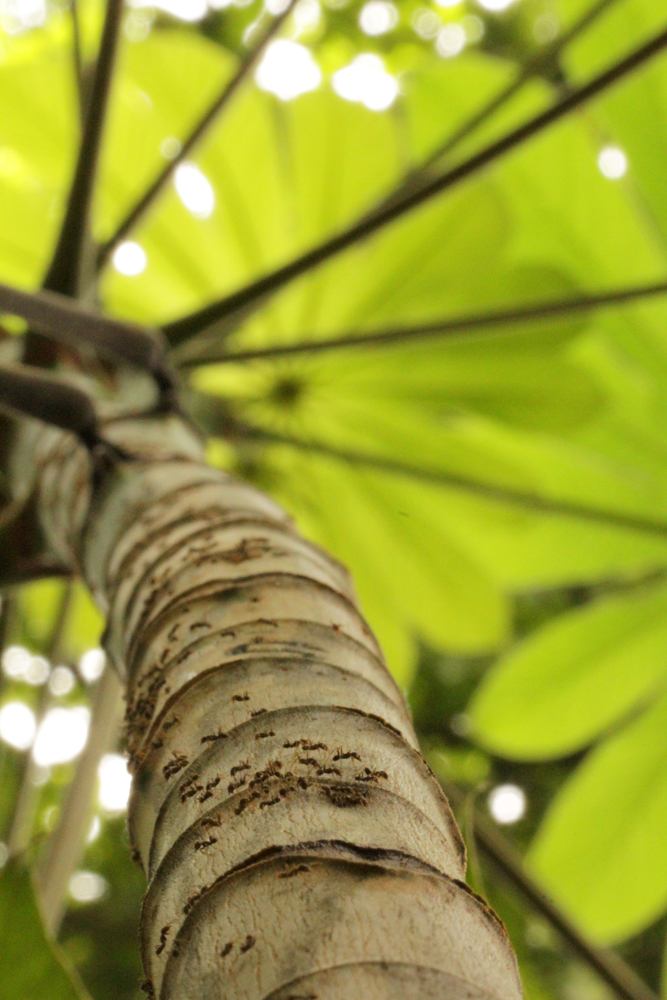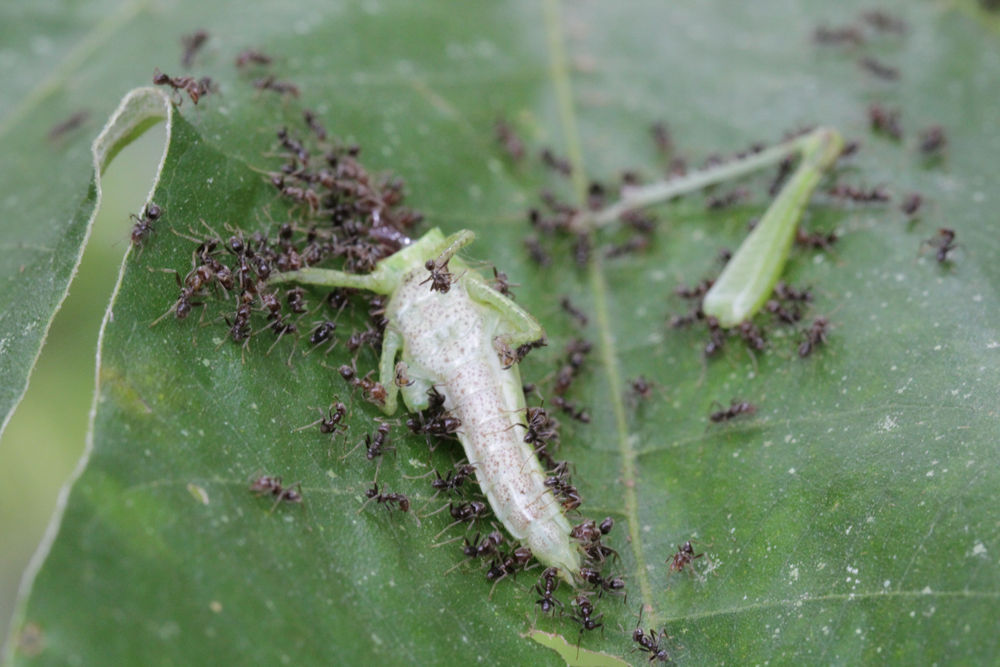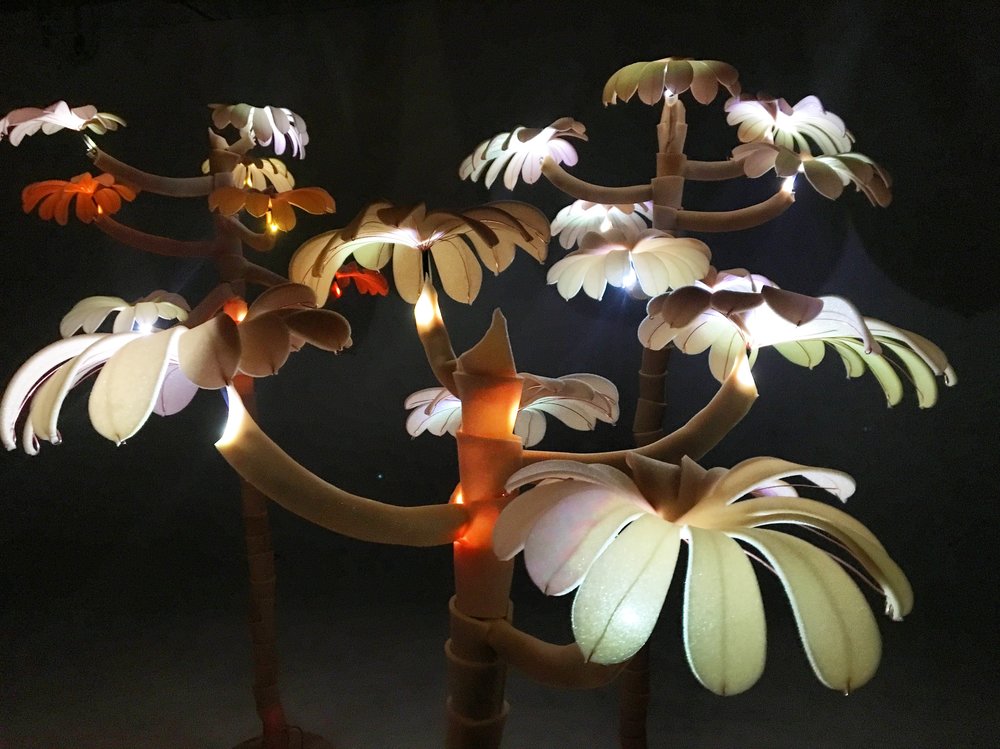They've Got Personality: Ant 'Superorganisms' Have Unique Temperaments

Get the world’s most fascinating discoveries delivered straight to your inbox.
You are now subscribed
Your newsletter sign-up was successful
Want to add more newsletters?
Join the club
Get full access to premium articles, exclusive features and a growing list of member rewards.
Individuality isn't just for individuals. Insect colonies, which function as so-called "superorganisms," appear to have personalities, scientists are finding. A new study has uncovered evidence of consistent behavioral differences among the Azteca ant colonies that inhabit tropical Cecropia trees. What's more, a colony's character appears to be connected to the health of the superorganism's tree, which the ants protect from attack.
Each tree-inhabiting colony that the researchers studied showed a distinctive pattern of behavior that the scientists could place on a scale of aggressive to docile. The trees that held the more aggressive colonies suffered less leaf damage.
However, it's not clear whether the colony personality is a cause or a consequence of the plant's condition, study author Peter Marting, a doctoral candidate at Arizona State University, told Live Science.
It's possible, for example, that a tree in poorer health can't properly nourish its colony, leaving the ants without the energy to aggressively defend it. But Marting said he suspects the relationship goes the other way: the ants are responsible for the difference in tree health. "My money would be that if a tree had a choice in the matter, [it] would certainly want one of those colonies that are really aggressive," he said.
Individuality of the collective
Cecropia trees house the ants within the plants' hollow-segmented, bamboo-like trunks and produce white nubs of carbohydrate-rich food for the insects. In return, the ants offer protection: They fend off marauding leaf-cutter ants, dismember grasshoppers, and bite much larger threats, such as woodpeckers and monkeys. If the foliage is damaged, a chemical cue from the tree calls the ants to investigate. They even trim trespassing vines. It's well-known that trees with ants do better than those without the insect protectors.
On his first trip to the Panamanian forest, where these partners live, Marting noticed that even among ant-inhabited trees, the leaf condition varied a lot. He said he wondered if the behavior of the resident superorganisms varied in consistent ways, just like that of individual animals.
Scientists have evaluated the personalities of all sorts of animals, from primates to fish, by placing those dispositions on a continuum of boldness to shyness. That is, while some individuals are aggressive and comfortable with risk, others are cautious and shy.
Get the world’s most fascinating discoveries delivered straight to your inbox.
Although composed of many individuals, insect colonies function much like a single organism, with every member working to benefit the group — hence the term "superorganism." Recent studies with other types of ants have concluded that the insects' colonies do indeed have personalities that can be described in similar terms to those used for individuals.
Personality test
At sites in Panama, the researchers in the new study set out to identify distinct patterns in each of 14 colonies' behavior under normal circumstances and those simulating a threat to their trees. This meant recording the ants’ movement, punching holes in the leaves, introducing leaf-cutter ants and flicking the tree, much like a woodpecker would, via a homemade robot.
The colonies' reactions varied. When the robot knocked one tree, 633 ants traveled across the part of the plant that the scientists were watching. In another tree, none of the insects passed by. In four of the five scenarios, the more active and aggressive colonies consistently behaved aggressively, while the more docile colonies consistently behaved less so. The more aggressive the colony, the less damage could be found on the trees' leaves, the analysis showed.
It's not clear where these personalities come from. The researchers could not connect those traits to the size or age of the colonies. Other possible explanations include the ants' genetics, the environmental conditions and the availability of resources, Marting said.
The research was described today (Dec. 5) in the journal Behavioral Ecology.
 Live Science Plus
Live Science Plus













